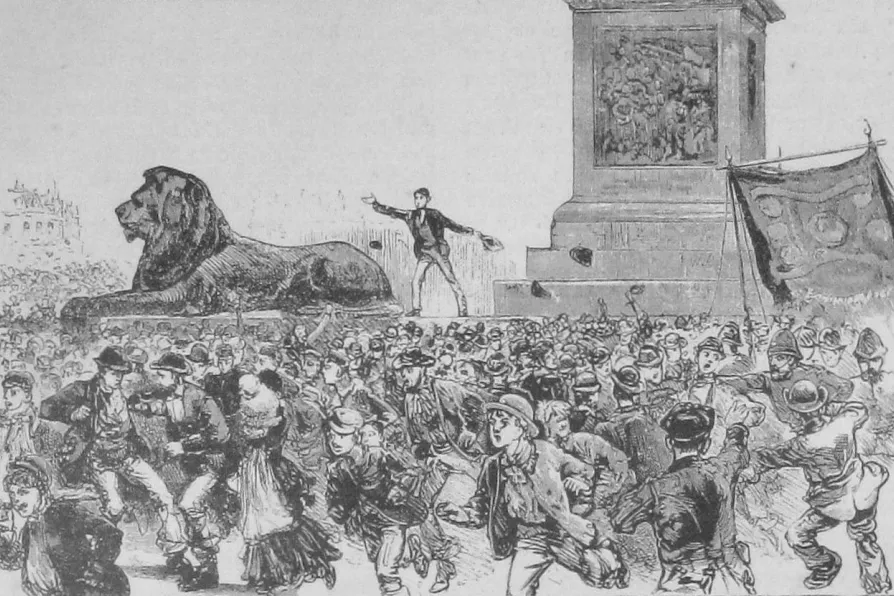The Mandelson scandal reveals a political settlement in which democratic choice is curtailed and the power of markets eclipses the will of voters – only the left can challenge this, writes JON TRICKETT MP

 End of the meeting in Trafalgar Square (illustration from the Illustrated London News)
[Public Domain]
End of the meeting in Trafalgar Square (illustration from the Illustrated London News)
[Public Domain]
THERE are some riots you just can’t help chuckling at, even if you’re not the sort of person usually given to inappropriate levity. The circumstances which led to the stoning of the Carlton Club, on February 8 1886, would surely be enough to make even the soberest cadre crack a tiny smile.
It began with a pressure group affiliated to the Conservative Party, called the Fair-Trade League, holding a rally in Trafalgar Square to demand “Free Trade within the Empire and Protection against the World.”
Interpreting this as an attempt to win working-class support for conservatism, the Social Democratic Federation, Britain’s earliest self-styled Marxist party, called its own demonstration — same time, same place. It argued that the unemployment then blighting the nation was caused by capitalism, not by beastly foreigners, and could be ameliorated by government support for new co-operative businesses.

The heroism of the jury who defied prison and starvation conditions secured the absolute right of juries to deliver verdicts based on conscience — a convention which is now under attack, writes MAT COWARD

MAT COWARD tells the story of Edward Maxted, whose preaching of socialism led to a ‘peasants’ revolt’ in the weeks running up to the first world war

Edinburgh can take great pride in an episode of its history where a murderous captain of the city guard was brought to justice by a righteous crowd — and nobody snitched to Westminster in the aftermath, writes MAT COWARD











